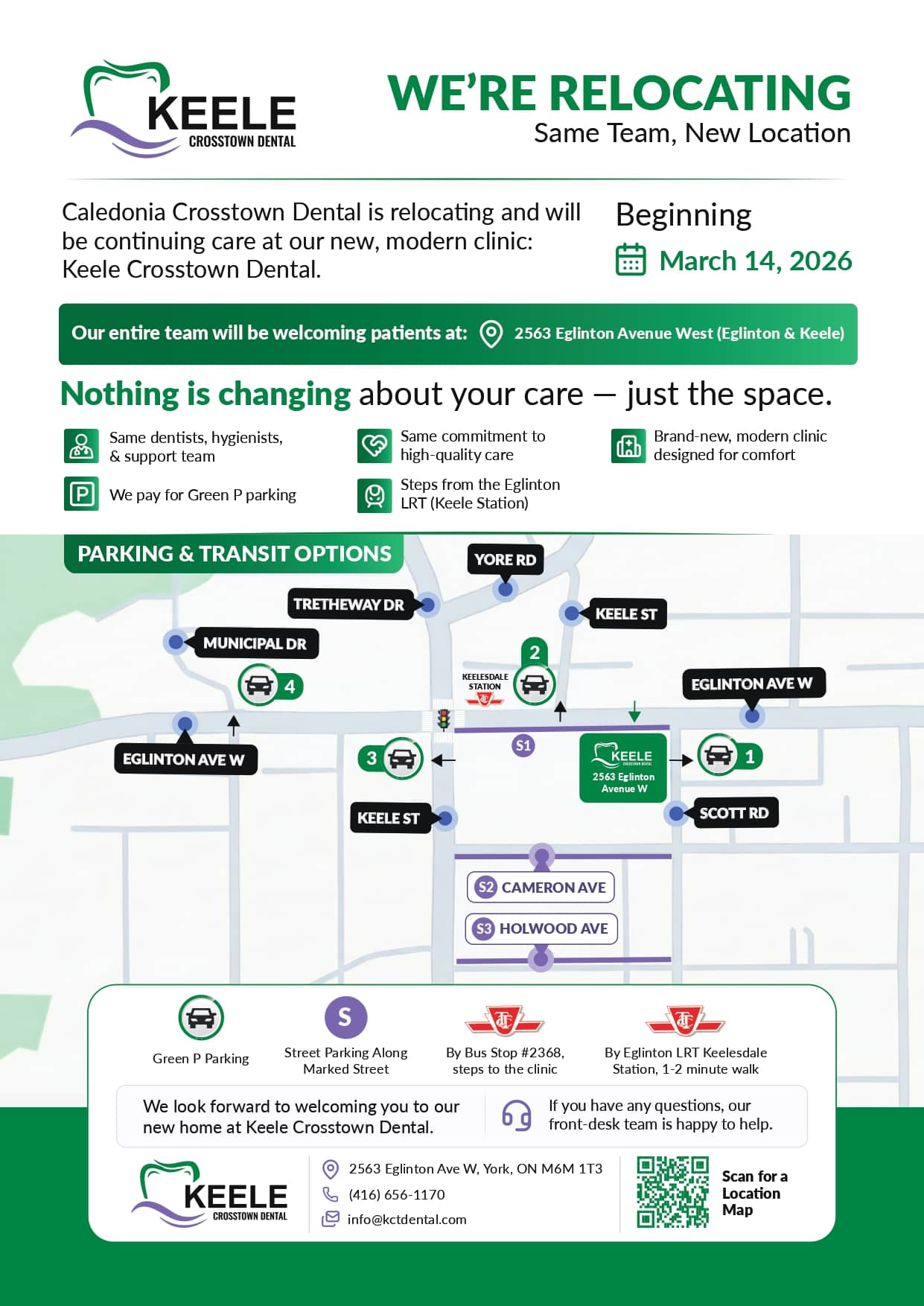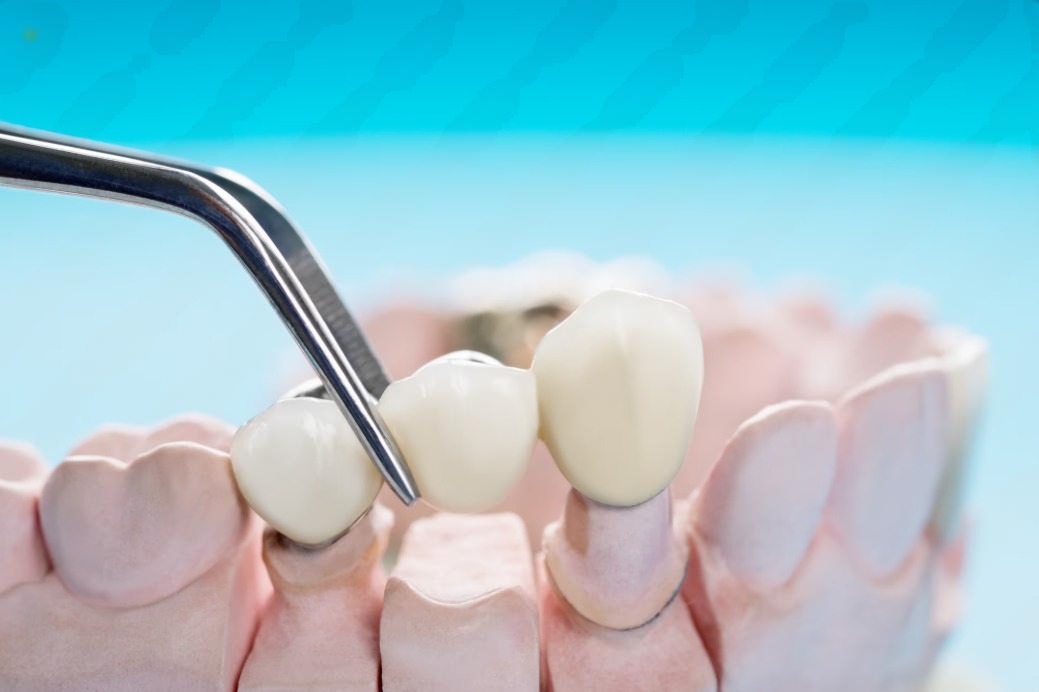If you’re missing one or more teeth, a dental bridge can help to replace those missing teeth and repair your smile, as well as make chewing easier. A dental bridge is a fixed replacement that “bridges” the gap between teeth that are healthy. A bridge will improve your smile and prevent your remaining teeth from shifting.
There are a variety of types of bridges that you may find near you, and your dental needs and the position of the missing tooth determine which type of bridge is best for you, and the overall condition of your gums and surrounding teeth. Below, we will outline the different types of bridges that are available so you can gain a better understanding of what your options may be.
What Are Dental Bridges?
A dental bridge is a prosthetic device used to replace one or more missing teeth. A dental bridge typically consists of prosthetic teeth (called pontics) maintained by either crowns on your natural teeth or on dental implants. A dentist will offer a bridge to restore functionality, maintain bite alignment and prevent further issues in your oral health.
Types of Dental Bridges
Here are the most common types of dental bridges you may find near you:
1. Traditional Dental Bridges Near You
Traditional bridges are the most common type of dental bridge. A traditional dental bridge will have a design that utilizes crowns on the teeth adjacent to the missing tooth to hold the bridge in place. The remaining supportive teeth are called abutments, and the artificial tooth fills the space in between them.
Pros:
- Strong and durable
- Works well for replacing one or more teeth in a row
- Long-lasting when cared for properly
Cons:
- Requires a lot of re-shaping of the adjacent teeth
- Not always the best option if the adjacent teeth are weak
2. Cantilever Dental Bridge Options
A cantilever dental bridges near you is used when there is only one natural tooth next to the gap. Rather than having support on both sides, it only has support on one side.
Pros:
- Good in situations when there is only one supporting tooth
- Requires less preparation than traditional bridges
Cons:
- Can place extra pressure on the supporting tooth
- Not typically recommended for the back of the mouth, as much higher chewing forces are experienced
3. Maryland Bonded Bridges Explained
Also called a resin-bonded bridge, a Maryland bonded bridge is a more conservative option. They have a metal or porcelain framework and are bonded to the back of nearby teeth, as crowns are not used. This makes it less invasive than a crown or a bridge, and if recommended by your dentist in York, it could be a great option.
Pros:
- Does not require the reshaping of adjacent teeth
- Good option for replacing front teeth
- Less expensive than traditional bridges
Cons:
- Not as strong as traditional bridges
- Has the potential to loosen over time if strong chewing forces are applied
4. Implant-Supported Bridges
An implant-supported bridge does not use crowns or frameworks for support and instead uses a series of implants. The implants that anchor the bridge are surgically inserted into the jawbone; the bridge is placed over these implants.
Pros:
- Very strong and stable
- Occupies the space of missing natural teeth (no reshaping of natural teeth)
- It can last a long time before needing to be replaced
Cons:
- Requires surgery
- Requires longer treatment time
- More expensive than alternative types of bridges
Comparison Table: Types of Dental Bridges
| Type of Bridge | Support Used | Best For | Key Advantage | Limitation |
| Traditional Bridge | Crowns on nearby teeth | One or more missing teeth in a row | Strong and reliable | Needs reshaping of nearby teeth |
| Cantilever Bridge | One adjacent tooth | Missing tooth with support on one side | Option when only one support is there | May stress the single support tooth |
| Maryland Bonded Bridge | Metal/porcelain framework | Front teeth replacement | Minimal tooth preparation | Less durable in the back teeth |
| Implant-Supported Bridge | Dental implants | Multiple missing teeth | Very stable, long-term solution | Requires surgery, higher cost |
Which Dental Bridge Is Right for You?
Choosing the best dental bridges for missing teeth is essential and it depends on several factors such as
- The number of teeth that are missing in the mouth
- The position (location) of the missing tooth (front or back)
- The health of the adjacent teeth and gums as well
- The budget for treatment and the overall expectations.
Your dentist near you will fully assess your oral health and make a recommendation for the option that fits your situation. For example, a Maryland bonded bridge may suit a front tooth, whereas an implant-supported bridge is typically more suitable for multiple missing teeth.
Missing Teeth? Get Dental Bridges To Bring Your Smile Back
Missing teeth can make eating and smiling difficult. Caledonia Crosstown Dental Centre offers dental bridges to restore your smile and help you chew comfortably. Our team uses safe as well as effective methods to make sure your new teeth fit well in your mouth and look natural with your other real teeth.
Book your appointment today and let our team help you regain a healthy smile.


